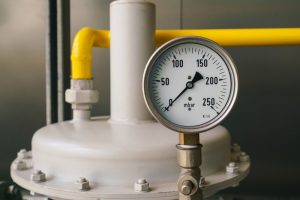 Have you ever been told by a plumbing professional that your boiler has been affected by boiler scale? Another name for it is boiler deposits. You might not be sure whether to take this issue seriously as it’s not blaringly obvious that something is wrong with your boiler. In fact, scaling in boilers is actually common.
Have you ever been told by a plumbing professional that your boiler has been affected by boiler scale? Another name for it is boiler deposits. You might not be sure whether to take this issue seriously as it’s not blaringly obvious that something is wrong with your boiler. In fact, scaling in boilers is actually common.
High levels of minerals in your water—namely, calcium and magnesium—get left behind in the boiler tank and tubes, which can lead to reduction in heat along with a loud banging noise indicating damage is being done inside. That said, if you’re wondering if it’s dangerous for your boiler, yes, it is!
Boiler Scale Facts
Fortunately, you can turn to our team for quality Bergen County, NJ boiler services. In the meantime, we want to fill you in on some boiler scale facts, so you not only understand what it can do, but how important it is to remedy the situation.
A boiler system that’s suffering from scale buildup is in danger of breaking down or leaking water into your property, both of which require immediate repair. But what does boiler scale look like—how do you know if you have it?
Perhaps at some point you’ve noticed white or yellowish buildup around your faucets or showerhead. This is the result of hard water, and its deposits are what’s known as scale. Now, imagine this same scaling inside of the tank of your boiler, or the pipes that move hot water around your home.
At first, small pieces of granular deposits can collect at the bottom of the boiler tank. Over time, though, these deposits coat the tank and tubes, adding an extra layer to the inside. The longer boiler scale goes on, the tougher it is to remove.
How This Damages the Boiler Tank
Scaling can do a lot of damage to the tank of your boiler system. As sediment settles and builds up at the bottom of your boiler tank, it becomes more difficult for the burners to actually heat the water. This is why you might notice that a boiler isn’t keeping you as warm as it once did.
As heat attempts to reach the water, bubbles may escape through the tank, rattling the sediment. This sediment can wear down the lining of the tank, allowing or corrosion to happen much sooner than it otherwise would have.
This scaling does more than just damage the tank. It also builds up in the tubes and pipes that enable water to move from the boiler to the rooms of your home. It acts as an insulator inside these pipes, and keeps heat from moving properly throughout the home. This can eventually cause the tube to overheat and crack. Scale also can build up to the extent that it completely blocks water from moving through the pipes, which creates a problem for the whole system.
DB Heating & Cooling, Inc serves the heating and cooling needs of customers throughout Rockland County, NY as well as Bergen County, NJ and surrounding communities. You can count on us for expert services. Contact us today!
